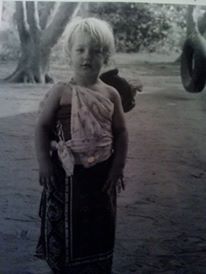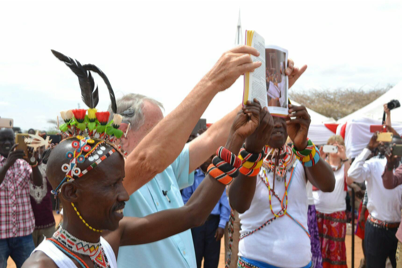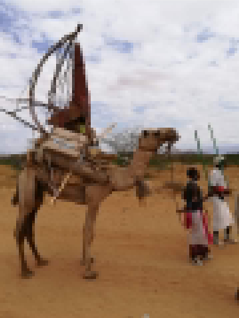One day I’ll write my whole story. For now, maybe getting some bits and pieces out is an okay place to start.
There are stories that shape you that go much deeper than your role in them. For me, the story of the Rendille Bible Translation is one of those stories.
My version of the story begins with my dad and mom as young adults, before they were married, each having a desire to do Bible translation and spending a summer at the University of Washington in Seattle to attend the SIL language school in 1975. By the end of the year they were engaged, married a few months later, and a year later were headed to Kenya with an infant son to do Bible translation with the Rendille. My version of the story probably gets the specifics and the details wrong, but it includes the deep passion my parents had for the Rendille people and the Rendille language, but also the challenges of figuring out life, marriage and family in the remote desert of northern Kenya.

It was while they were in this context, living in the desert and struggling to figure out how to do Bible translation for a language that was not even written down, that I was born. While I don’t have any concrete memories of this time, it is at the foundation of my story. It was the tribes in northern Kenya that were my first friends and neighbors. Their languages were the first ones I heard and learned. Their women were my first babysitters, their children my first play-mates. Goats and camels were as common to my early childhood world as squirrels are to children in the U.S. The sounds, smells, and rhythms of this community were the first building blocks to my sense of the world. This was my first village.

Before I turned 5, my parents left Northern Kenya and relocated to Nairobi. This was a significant shift in my parents’ professional and personal lives, and they left the Bible translation projects for other work. But the Rendille people and the translation project that continued were regularly referenced and discussed in our family. We knew the missionaries who moved in after we left, as our lives criss-crossed at school, conferences, and other events throughout the years.

My parents never returned to that region of Kenya for work, although I think they got to visit. But when I left Kenya after high school and they left Kenya shortly after, I was still aware that this ongoing work with the Rendille people was very dear to them. My dad’s dream of hearing the Word of God shared in the Rendille language was the subtext to everything else he did in leadership development and equipping the national church for cross-cultural ministry. In 2018, the New Testament translation in the Rendille language was complete, and the community was preparing to host a celebration for the dedication. This project that my parents were sort of part of in its very early stages was finally complete–40 years later. Printed Bibles were brought into the community on the back of a camel, in the shadow of incredible singing and dancing.
And we can have all kinds of conversation about the male-dominated language for God in the posts about this celebration, about the white Jesus in the illustration, and about the complicated connection between missions and colonialism in East Africa. Yes. Those conversations are necessary and vital, and make their own complicated way through my reflections.
But, at the same time, I hear the singing in a language I don’t understand and yet sounds familiar, and I see the testimony of theologically trained community leaders who now get to read scripture in their own language. I think of the partnerships and deep relationships that have formed across cultures, and I see the incredible joy in the faces of children and adults who get to see and hear Bible stories in their own language.
There are stories and experiences that shape and form life for years to come. In ways that I’m still figuring out how to articulate, the commitment my dad had to the Rendille people, my parents’ decision to live among them and learn their language, and the yearning for the Word of God to be available and accessible to all people is one of those stories for me.

You must be logged in to post a comment.